Jean Baptiste Point du Sable died on August 28, 1818, in St. Charles, Missouri Territory. He’s credited as the founder of Chicago.
Little is known of Point du Sable’s life prior to the 1770s. One account suggests he was born in Haiti around 1745. There’s some debate over whether he entered the US from the north through French Canada or from the south through French Louisiana. He may have immigrated to New Orleans around 1765 and continued to move north, following the French boundaries.
In 1779, during the American Revolutionary War, British troops arrested Point du Sable on suspicion of supporting the rebellion. He was briefly imprisoned, but was released after several people came forward to vouch for his good character. He was then ordered to the Pinery near Detroit from 1780 to 1784 owned by a British officer, which may have been a condition of his release.
Point du Sable befriended the Native Americans in the area and married a Potawatomi woman named Kitihawa in 1788 (though they may have been married earlier in the Potawatomi tradition). They had two children together.
Point du Sable is generally considered to be the first non-native permanent resident of Chicago. While others had visited the area before him, and established short-lived posts, it was from his farm that the city of Chicago grew. However, the exact date of his settlement is unclear.
An account from British commandant Arent DePeyseter noted that Point du Sable was living in “Eschecagou” in the late 1770s and described him as well-educated and handsome. However, letters from traders note that Point du Sable was living in present-day Michigan City, Indiana at this time. The earliest recorded date of Point du Sable living in Chicago came from Hugh Heward’s journal entry for May 10, 1790. Heward noted that he and his party had stopped at Point du Sable’s house on their way to the Chicago portage. Point du Sable gave them a small boat and sold them bread, flour, and pork.
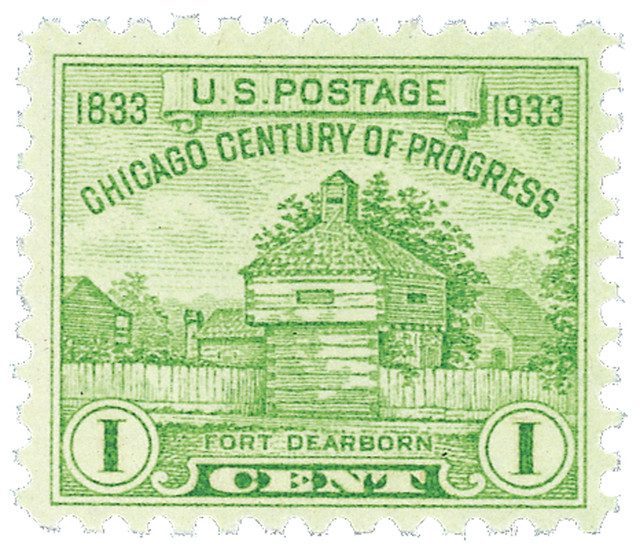
Point du Sable prospered in his Chicago surroundings as a general merchant, fur trader, and farmer. He established a prosperous trading post, which included a 40’x20′ dwelling – a size almost unheard of in the wilderness – 2 barns, a mill, a bakehouse, a poultry house, and large livestock holdings. Du Sable’s trading was very successful and made him quite rich.
Point du Sable sold his Chicago farm in 1800 and settled in St. Charles, Spanish Louisiana (present-day Missouri). His reasons for leaving are unclear. Some speculate it was because he hadn’t been made a chief in his wife’s tribe, while others suggest it may have been because the US government wanted him to buy the land he’d already lived on for two decades. In his new home, Point du Sable ran a government-commissioned ferry across the Missouri River. Point du Sable died on August 28, 1818, and was buried in an unmarked grave in St. Charles Borromeo Cemetery. A granite marker was later placed at the suspected location of his gravesite.

Point du Sable was largely forgotten for many years and the man who bought his farm, John Kinzie, was often credited as the founder of Chicago. In the 1930s, Chicago was planning its Century of Progress Exposition. The fair presented the 1803 construction of Fort Dearborn as the city’s historical beginning, but several African American groups called for Point du Sable to be honored as well. In the end, a replica of his cabin was built to represent the “background of the history of Chicago.” Point du Sable’s homesite was declared a National Historic Landmark in 1976 and several places around Chicago have been named in his honor.
| FREE printable This Day in History album pages Download a PDF of today’s article. Get a binder or other supplies to create your This Day in History album. |
Discover what else happened on This Day in History.

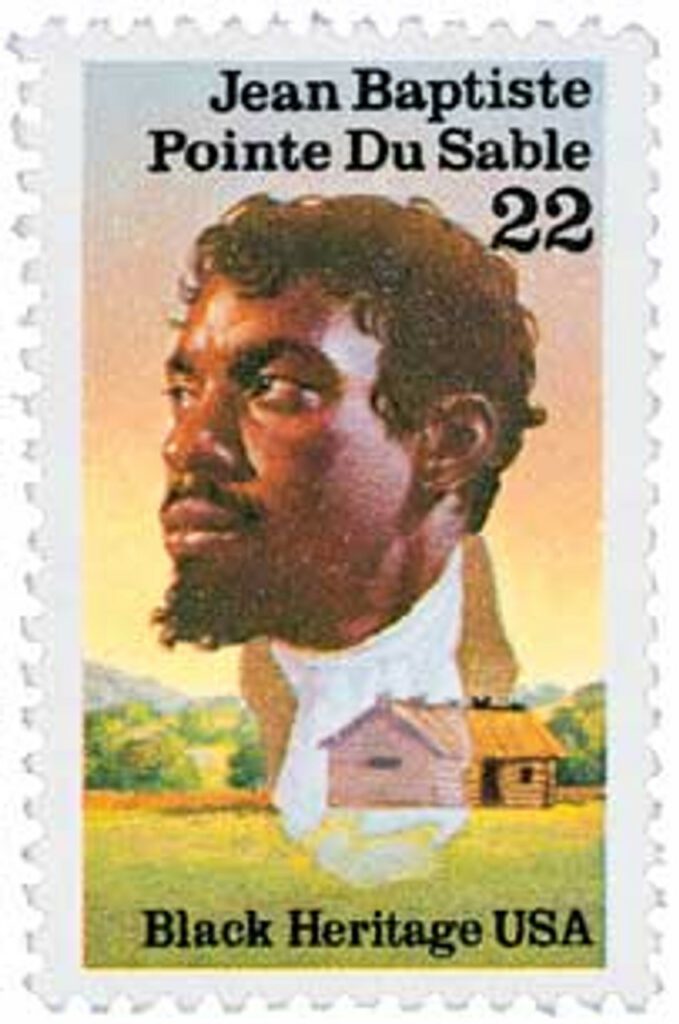
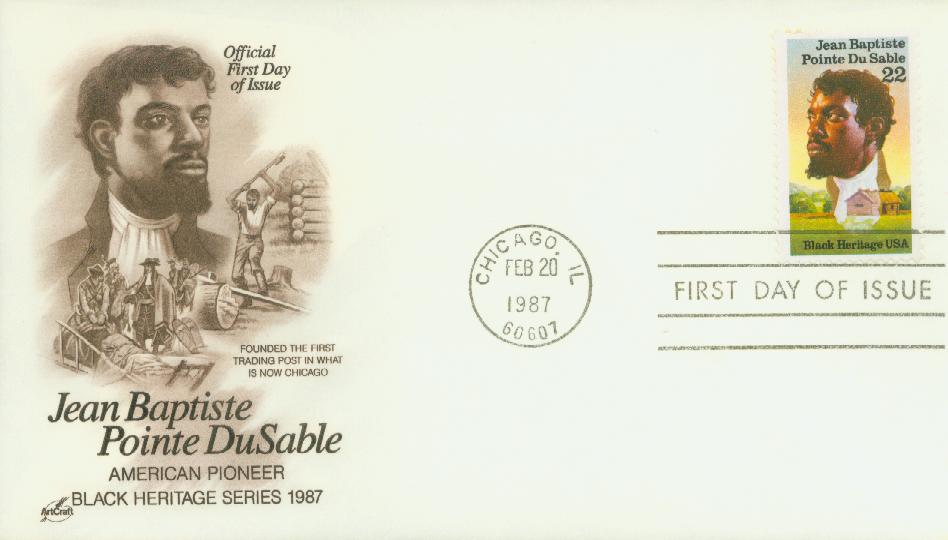
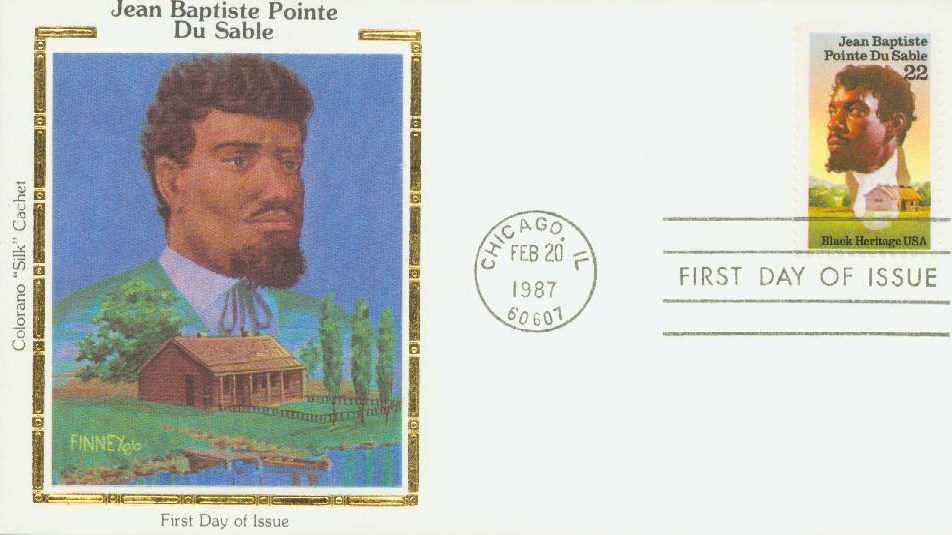
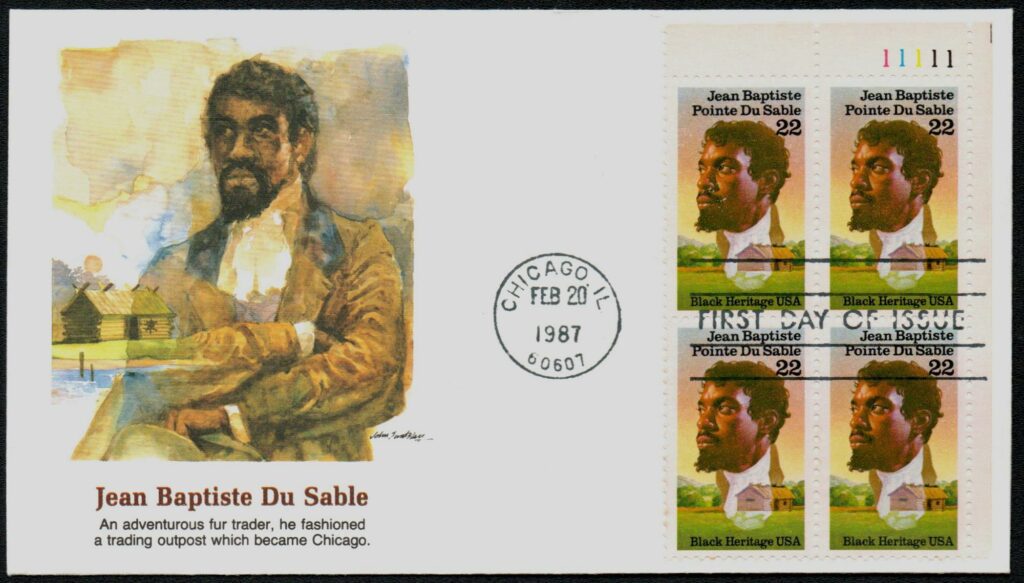
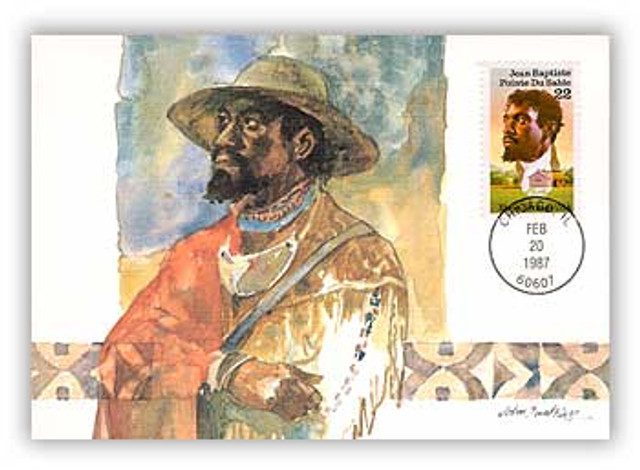
Thank you for information about someone who was unknown to me. However, the second sentence states: “He is credited as the founded of Chicago”?
There’s a day to honor Cashimir Pulaski in Chicago; so what is the reason why there is NOT a day that honors Jean Baptiste Pointe Du Sable since he is the original founder of Chicago❓